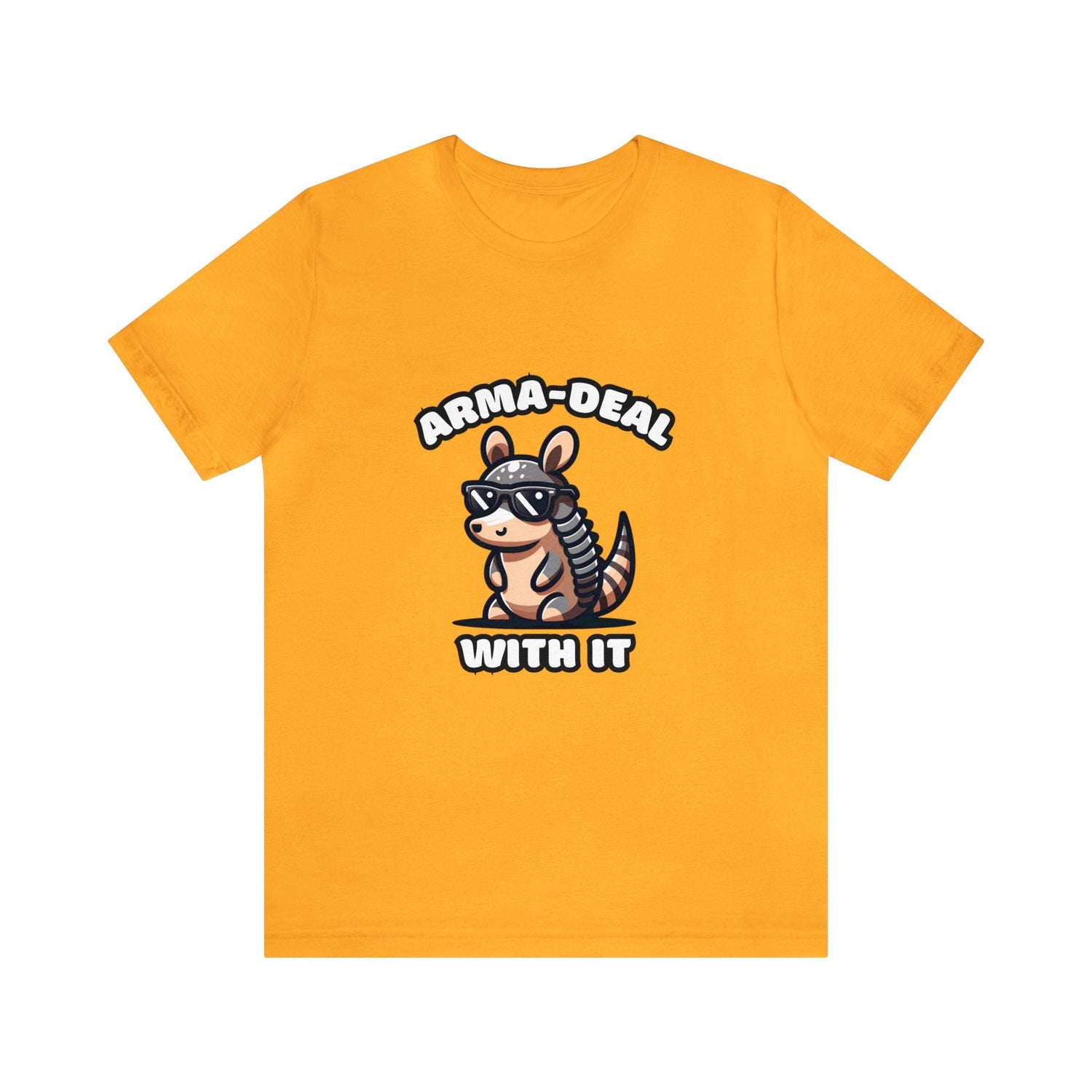Ever feel like your dog is giving you the cold shoulder?
You call their name and ask for their attention, but they stare blankly at you. You even try to play their favorite games, but they hide in their cozy corner of the house.
Don't worry, you're not alone in wondering, why does my dog ignore me?
In this article, we'll discuss the most common reasons, from health issues to training mistakes, and provide tips on fostering a trusty bond with your dog.
Plus, we have a little surprise at the end, too!
If you want to show off your love for your munchkin, Puns and Paws has a peculiar collection of unique and delightful pet-themed t-shirts.
So, let's start!
Why Is My Dog Giving Me a Cold Shoulder?
It can be discouraging when our furry companions ignore our existence. It might seem like indifference from their side. But don’t take it personally because there's more to the story!
The thing about dogs ignoring us is, that our dogs aren't ignoring us out of pettiness. They have their reasons, just like we do when we zone out during a mind-numbing documentary.
Perhaps they are fixated on that new, enigmatic smell, experiencing anxiety at a new location, or simply feeling unwell.
But the good news is that identifying the underlying cause of their behavior can help you form a deeper bond with your adorable pup.
Ultimately, when we finally cut through the surface and get to the issue's core, we'll discover that our furry companions are just as ready to interact with us as we are.
A lot of it actually has to do with proper dog training and not your dog being mean.
Reasons Why Your Dog May Be Ignoring You?

Here are a few reasons if you're wondering why your dog is ignoring you. We hope these can help you with proper behavior and the proper training if your dog ignores you.
1. Getting Distracted
Ever found yourself on a peaceful walk around the park, soaking up the sun with your pup?
You call out your dog, your other dog, and your furry companion dog's name, expecting them to return to you. However, they completely ignore you, focusing their attention on the ground or in the distance.
Sound familiar?
It's okay to feel disappointed when your dogs, other animals, or furry companions seem completely engrossed in their sensory experience and are more eager to explore the grasslands than play with you.
But remember that their strong senses allow them to detect even the smallest sounds, smells, or movements in their surroundings, especially during dog training.
That is why your dog may simply be following its instincts and pursuing that tempting diversion when it tunes you out. It may not be intentional.
2. Boredom Strikes
Like humans, dogs can get bored, too!
Why?
Imagine yourself locked indoors for a long time with nothing interesting to do. You might lose yourself in the fantastical daydreams to pass the time.
Similarly, dogs can become bored easily, making them unresponsive and uninterested in training and play sessions if they don't have enough mental and physical stimulation.
3. Health Issues
Here's something to consider: sometimes, a lack of responsiveness in your dog could be a sign of an underlying health issue.
Maybe your pup is fighting a bothersome tummy ache or struggling with a toothache. Monitor their health closely to watch for any signs of illnesses such as excessive licking or changes in appetite.
So, if that is the case, instead of wondering why a dog may be ignoring you, you should contact a vet if you notice any of these signs.
4. Age and Developmental Factors
Just like us, dogs go through different life stages.
Puppies are notorious for having the attention span of a goldfish and the energy of a tiny hurricane. If your little fur ball seems to be constantly on the go and ignoring your commands, it's probably because it's busy exploring its world with boundless curiosity.
Older dogs, on the other hand, might seem less interested in training or take longer to respond to you. This could be due to normal age-related things in senior dogs, like hearing loss or dog dementia.
5. Communication Issues
Let's now discuss the part that humans play in all of this. Yes, we might occasionally be the cause of the issue.
While we may believe our commands are completely obvious, we're communicating with our dog through some magical code the pups find difficult to decipher.
Furthermore, it makes sense why our poor pups are left scratching their heads - or, maybe more accurately, tilting them in confusion - if we're always switching up our commands or sending mixed messages.
5. A Gap in Understanding Your Dog's Language
Mastering our dogs' language is the first step to having a successful conversation with them.
Well, most dogs can't speak our language to communicate their troubles.
Your pup relies completely on body language and behavior to communicate with its human parent. Therefore, you need to decipher these signs to understand your pet better. For instance, your furry companion’s wagging tail indicates joy, while flattened ears might indicate nervousness.
9 Tips on Improving Communication With Your Furry Companion
Here are a few important tips on improving your communication as a dog owner during dog training.

1. Establish Leadership
First things first, establish yourself as the leader of the pack.
Dogs are natural followers, but they require guidance from a strong leader. Establish yourself as a reliable leader and engage with your pup confidently. Your dog will obey your directions readily and happily if they perceive you as a self-assured and dependable leader.
2. Use Positive Reinforcement
Instead of yelling or getting frustrated when your furry friend isn't listening, try positive reinforcement. This method encourages you to give positive reinforcement and reward your dog with treats or acknowledgment for doing what you want.
Imagine this: You did a great job at your work, and your company might give you a bonus or honor you as the employee of the month to show appreciation for your work. This encourages you to do a good job again, right?
Likewise, when your dogs attentively listen to you and obey your instructions, reward them with their favorite treats or shower them with praise. This way, they learn that listening well and being next to you leads to better things and more love, and they'll be more likely to do it again next time.
Refrain from negative reinforcement, which can severely damage your relationship with your furry companion.
3. Consistency is Key
Training your dog is akin to learning a new language; it's difficult and time-consuming, and inconsistencies in rules/grammar can make it impossible to learn anything.
- To help your dog be more responsive to your commands, maintain consistency in your voice tone, gestures, and orders. Consistency gives dogs a clear foundation for learning and understanding because dogs thrive on routine and predictability.
- Using the same words and hand signals for things like "sit" or "go outside" helps your pup figure out what you want. The more you do this, the better your furry companion becomes at understanding you. Using clear and concise phrases is important, allowing them to associate specific words or gestures with certain actions and behaviors.
- Schedule short, interactive sessions regularly rather than long ones to keep your furry friend engaged.
- Lastly, reward the good behavior with treats and praise to encourage your pup to improve.
4. Practice Active Listening
Speaking and active listening are both important elements of communication.
It's crucial to closely monitor your dog’s reactions to various stimuli during training sessions and regular interactions. Are they engaged and responsive, or do they seem distracted or disinterested?
Listening to your dog's wants and needs allows you to adjust your communication style accordingly.
5. Build Trust Through Bonding Activities When Training Dogs
Spending quality time with your pup is an incredible way to foster an impeccable connection with your dog.
Here is a list of activities you can implement in your daily routine:
- Take your dog on a walk or go for a run.
- Grounders - also called Hoopers - encourage your dog to navigate the agility course while you stand in the middle to give them instructions.
- Grooming allows you to tame the thick coat of your pup and shower your dog with love and attention.
- Cuddling time and snuggling on the couch is an excellent way to relax with your dog.
6. Understanding Your Dog's Needs With Proper Training
Not all pups are the same.
They have a unique personality with distinctive preferences and quirks. Remember to monitor them closely. This will empower you to learn about their needs and build a reliable connection.
You can do that through interactive games and puzzle toys or by changing your training methods to fit your learning preferences.
7. Practice Patience and Understanding
As you strive to nurture your bond with your dog, remember that effective communication requires patience and understanding.
Training your precious pup will not happen overnight. Give your dog enough time to pick up on and understand your commands by being patient with them. Keep your expectations low because training requires patience and consistency.
Take your time to recognize that acquiring excellent communication techniques can be a challenge. As your dog learns and develops, acknowledge and appreciate its little accomplishments.
8. Stay Calm and Confident When Your Dog Suddenly Starts Ignoring
Dogs are attuned to human emotions. Therefore, it is important to keep your calm while training your dog. Don't get upset if your dog does not respond immediately or even after a few tries. Otherwise, your dog will get discouraged from responding to your instructions.
Maintain a calm composure throughout the training session. This will encourage your dog to improve and be more attentive.
Dogs can't hold a grudge. However, they can form negative or pleasant associations with places, people, or experiences, such as the sound of a lawnmower or a visit to the vet.
A study at Kyoto University discovered that dogs are less likely to accept treats from people who have treated them negatively.
That is why it's crucial to form positive associations to ensure a change in behavior by giving them treats or cuddles.
9. Seek Professional Help if Needed
If you’re frustrated teaching training your pup some good habits, contact a professional for help. Just like some humans need extra help learning things a new word, sometimes a top dog trainer thinks our furry friends do, too.
Here's the good news: professional dog trainers can determine what makes your pup tick and give you easy-to-follow tips to create a happier, well-trained furry companion.
Final Thoughts
You're not alone if you feel like your dog is intentionally ignoring you. Instead of dwelling on your feelings about why does my dog ignore me, it's important to figure out why your dog seems uninterested.
Plus, understanding can immensely improve your communication with the dog. Understanding their behavior helps you nurture a stronger friendship regardless of the reason. Whether it’s caused by distractions, boredom, health issues, or developmental factors, uncovering the root cause can help you address the problems effectively and build a deeper connection with your pet.
The good news is that consistency and patience can help you immensely improve communication with your furball. Think of it like training; using rewards and keeping things positive makes learning fun for both of you.
And while you’re at it, why not show off your unique connection with your adorable pups with Puns and Paws T-shirts?
Browse our collection of adorable T-shirts and get one on sale TODAY!
---
Meta Description: Explore the common reasons for “Why Does My Dog Ignore Me?” Strengthen your bond and improve communication with our insights.


